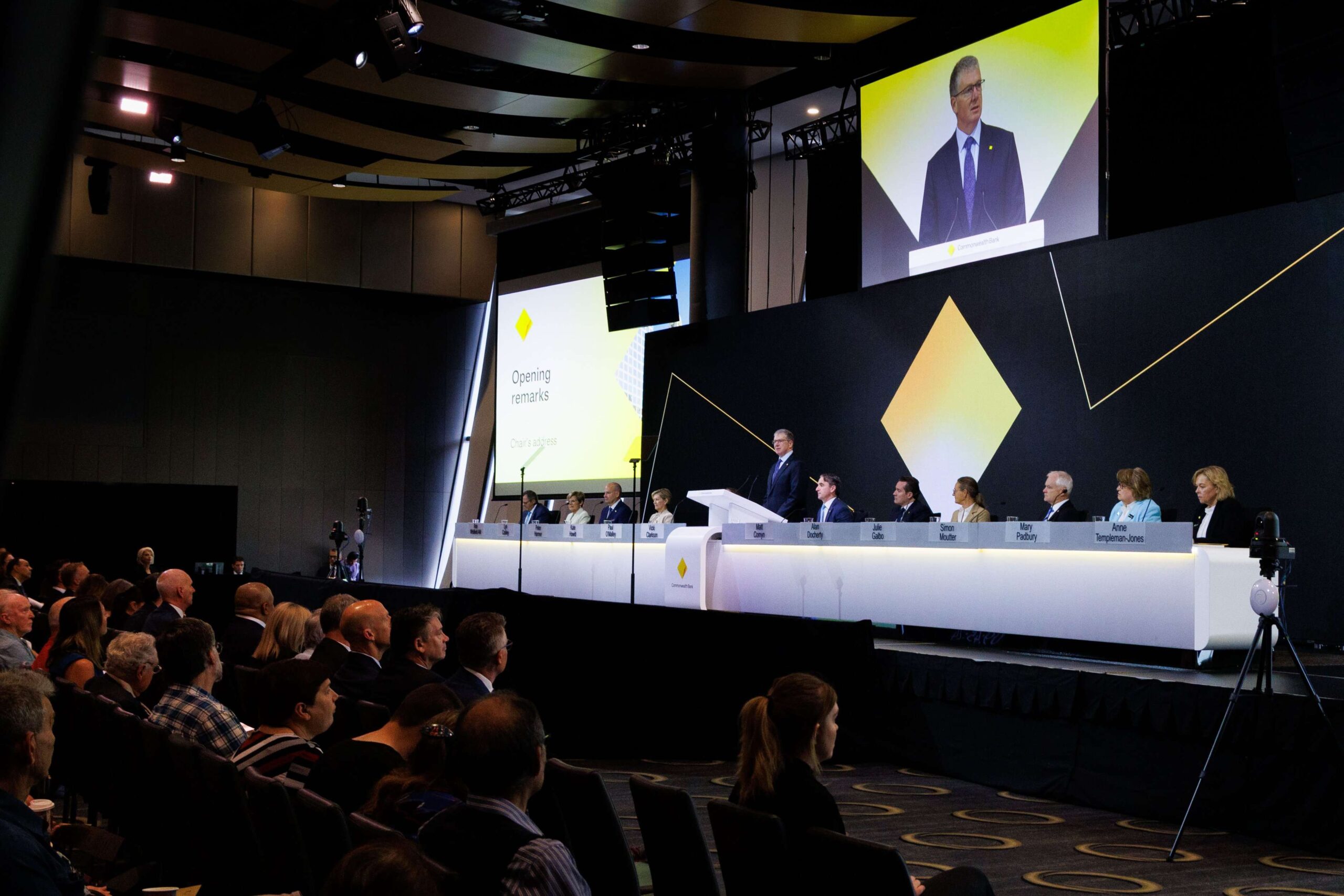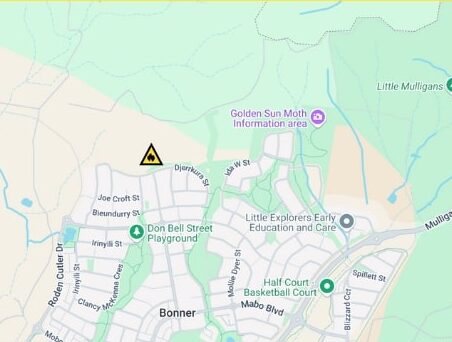
Commonwealth Bank executives are talking up the potential of artificial intelligence and defending the bank’s record on gender pay equality.
CBA chairman Paul O’Malley told shareholders at the bank’s annual general meeting in Adelaide on Wednesday that AI was a “really important topic” and the bank had already developed six principles to govern its use of the technology.
Those principles include that AI be powered by renewable energy and only use water in the context of Australia’s water governance, it needs to be fair, transparent and respectful of the privacy of CBA’s customers and employees and be safe, reliable and accountable.
“AI, it is about using those fundamental principles, but (also) improving our engaging with customers, simplifying banking and also simplifying operational processes,” Mr O’Malley said.
“We have the best, most capable people working within those principles to help us develop the use of AI, and we have to do it in a very considered and methodical way so more AI will appear over time,” he said.
Chief executive Matt Comyn said CBA was using AI to improve customer experiences and guard against scams but reports that the bank was rolling out AI in call centres was a little misrepresented.
“In particular, it’s fair to say that whilst there is certainly potential with AI, it will take some time before we’ll be sufficiently confident that we can control all the risks to be able to safely manage that at scale,” Mr Comyn said.
Mr O’Malley disputed a question from Jason Hall, the local executive secretary of the Finance Sector Union, who said that CBA had one of the worst corporate gender pay gaps in corporate Australia.
“What is the bank doing to do address the almost 30 per cent gender pay gap? What is it doing to ensure next year’s results is an improvement, on a pathway to a zero gender pay gap,” Mr Hall asked.
Mr O’Malley said CBA was absolutely committed to gender equality and ensuring that in like-for-like jobs there was gender equality.
He pointed out that CBA’s board was 44 per cent female, as was 40 per cent of its group executives, but added that fewer women come through the STEM fields of science, technology and engineering and the bank had been hiring more software engineers.
“That is an area where the jobs tend to be higher paid and there tend to be more males than females,” he said.
“So there’s a structural issue there that we need to work through.”
There were also more women in call centres, which don’t tend to be as well paid, but CBA had been trying to retrain and provide opportunities for people to upskill and move into higher pay bands, Mr O’Malley said.
The meeting was continuing at midday, touching on topics ranging from regional bank closures to Israel and Gaza to the financing of metallurgical coalmines.
Who can be trusted?
In a world of spin and confusion, there’s never been a more important time to support independent journalism in Canberra.
If you trust our work online and want to enforce the power of independent voices, I invite you to make a small contribution.
Every dollar of support is invested back into our journalism to help keep citynews.com.au strong and free.
Thank you,
Ian Meikle, editor





Leave a Reply